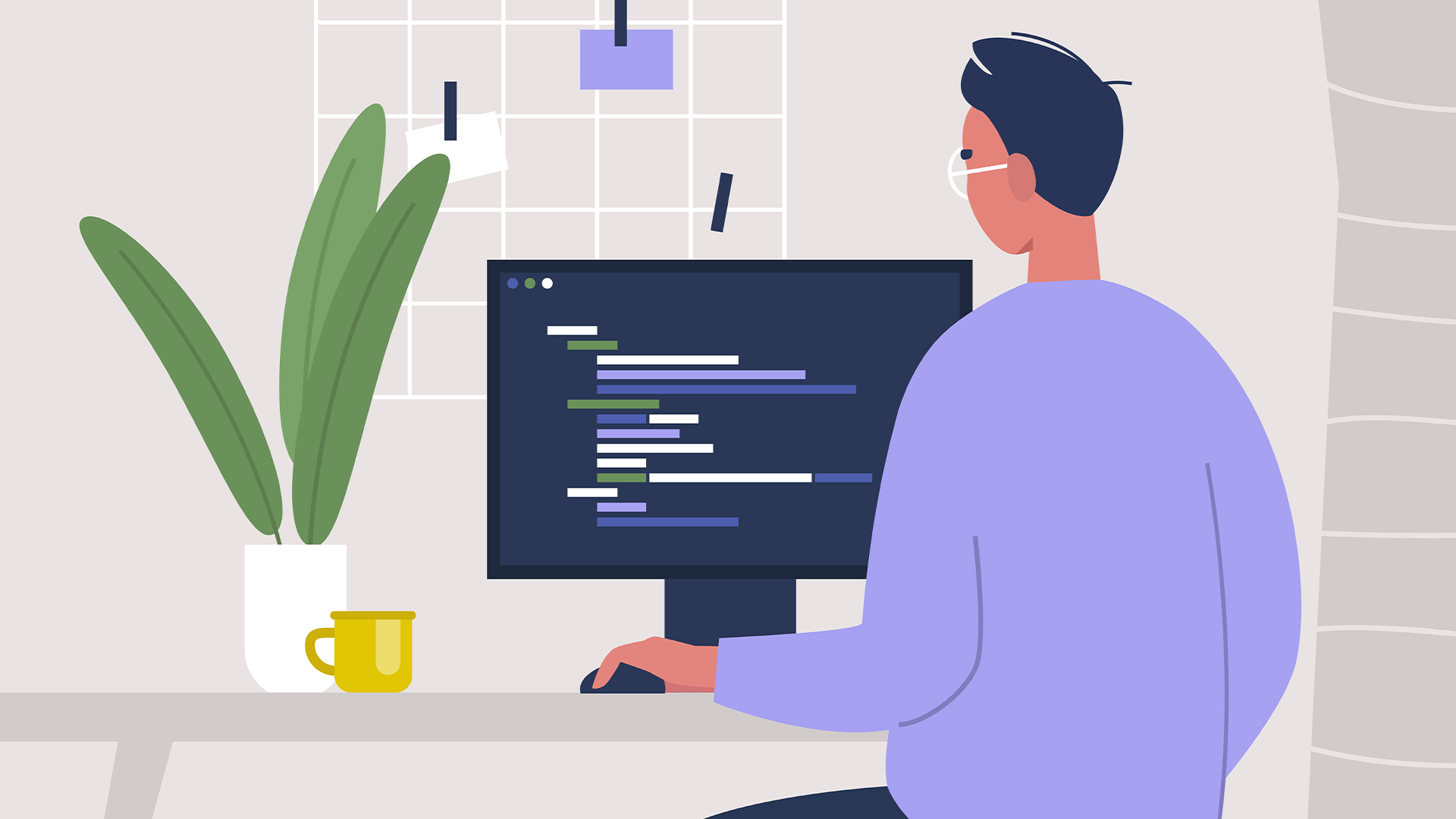AI coding tools aren’t the solution to the unfolding 'developer crisis’ – teams think they can boost productivity and delivery times, but end up bogged down by manual remediation and unsafe code
AI is pitched as the perfect solution to growing developer productivity problems, but it comes with its own problems


Despite its efficiency benefits, AI code generation and similar solutions may not be the panacea to the ongoing ‘developer crisis’, new research warns.
AI code generation tools may have helped increase velocity, but deployment errors mean devs are becoming increasingly bogged down in manual tasks remediating the systems’ various failings.
A new report from Harness interviewed 500 engineering leaders and practitioners to gauge the impact of AI coding tools on software delivery, assessing the current challenges inhibiting the successful incorporation of AI into the existing modern software development ecosystem.
Harness found 59% of developers reported problems with deployments at least half the time when using AI coding tools.
Although 92% of respondents reported that AI tools increased the volume of code shipped into production, they noted they also increased the ‘blast radius’ of a bad deployment.
In addition, 67% developers said they spend more time debugging AI-generated code and 68% spent more time resolving security vulnerabilities after adopting AI tools.
The report argued that while AI accelerates code production it ultimately creates “new demands around code review, security validation, and quality assurance [QA].”
Get the ITPro daily newsletter
Sign up today and you will receive a free copy of our Future Focus 2025 report - the leading guidance on AI, cybersecurity and other IT challenges as per 700+ senior executives
Developers noted that this “increased verification overhead” offsets a “considerable amount of the productivity gains”.
Harness spoke to engineering leaders about their top concerns about the increased adoption of AI code generation tools and the impact it has had on their workplace.
Just over half (52%) of leaders said they have observed an increase in vulnerabilities and security incidents after their organization started using AI-generated code, as well as an increase in performance problems.
Furthermore, 46% cited a growth in the amount of manual downstream work developers had to do, including QA, testing and integration, as well as a more effort associated with regulatory non-compliance (44%), and a reduction in code quality (40%).
AI coding tools look to help alleviate growing productivity losses
The Harness report argues that the appetite for these AI coding solutions is high due to the increasing pressure software development teams are under to stay on top of ever-expanding responsibilities while ensuring velocity is maintained.
Harness found developers are already struggling with lost productivity due to constant context switching and a litany of manual tasks that distract them from their work.
Over three quarters (78%) of developers said they spend at least 30% of their time on manual, repetitive tasks. This includes writing compliance policies, conducting quality assurance testing, and error remediation.
Bogging developers down with these tasks could have a significant financial impact on your organization, Harness warned, providing an estimate for the cost these solutions have had on productivity overall.
Using the average developer salary of $107,599, Harness found that if devs are spending 30% of their time on manual tasks, this would equate to $32,280 of wasted investment per developer.
Extrapolating this out to the 25 organizations Harness spoke to, this balloons to at least $8 million in lost productivity per engineering team.
Harness added that on top of the financial waste, these tasks are also creating burnout issues by burdening them with an ever-growing workload of manual, repetitive tasks that keep them from coding.
RELATED WHITEPAPER

When asked about how many hours they work a week, 88% of respondents said they work more than 40 hours per week. Half of developers said that working overtime like this creates an unhealthy work/life balance, while 46% said it entices them to leave an organization.
Virtually every developer (98%) said they believe AI tools are a great way to reduce burnout, but that although they may help free them up to ship code more quickly, they are still concerned about the potential negative impacts this code could have.

Solomon Klappholz is a former staff writer for ITPro and ChannelPro. He has experience writing about the technologies that facilitate industrial manufacturing, which led to him developing a particular interest in cybersecurity, IT regulation, industrial infrastructure applications, and machine learning.
-
 Why are many men in tech blind to the gender divide?
Why are many men in tech blind to the gender divide?In-depth From bias to better recognition, male allies in tech must challenge the status quo to advance gender equality
By Keri Allan
-
 BenQ PD3226G monitor review
BenQ PD3226G monitor reviewReviews This 32-inch monitor aims to provide the best of all possible worlds – 4K resolution, 144Hz refresh rate and pro-class color accuracy – and it mostly succeeds
By Sasha Muller
-
 AI was a harbinger of doom for low-code solutions, but peaceful coexistence is possible – developers still love the time savings and simplicity despite the allure of popular AI coding tools
AI was a harbinger of doom for low-code solutions, but peaceful coexistence is possible – developers still love the time savings and simplicity despite the allure of popular AI coding toolsNews The impact of AI coding tools on the low-code market hasn't been quite as disastrous as predicted
By Ross Kelly
-
 ‘Frontier models are still unable to solve the majority of tasks’: AI might not replace software engineers just yet – OpenAI researchers found leading models and coding tools still lag behind humans on basic tasks
‘Frontier models are still unable to solve the majority of tasks’: AI might not replace software engineers just yet – OpenAI researchers found leading models and coding tools still lag behind humans on basic tasksNews AI might not replace software engineers just yet as new research from OpenAI reveals ongoing weaknesses in the technology.
By George Fitzmaurice
-
 ‘We’re trading deep understanding for quick fixes’: Junior software developers lack coding skills because of an overreliance on AI tools – and it could spell trouble for the future of development
‘We’re trading deep understanding for quick fixes’: Junior software developers lack coding skills because of an overreliance on AI tools – and it could spell trouble for the future of developmentNews Junior software developers may lack coding skills because of an overreliance on AI tools, industry experts suggest.
By George Fitzmaurice
-
 GitHub's new 'Agent Mode' feature lets AI take the reins for developers
GitHub's new 'Agent Mode' feature lets AI take the reins for developersNews GitHub has unveiled the launch of 'Agent Mode' - a new agentic AI feature aimed at automating developer activities.
By Ross Kelly
-
 The world's 'first AI software engineer' isn't living up to expectations: Cognition AI's 'Devin' assistant was touted as a game changer for developers, but so far it's fumbling tasks and struggling to compete with human workers
The world's 'first AI software engineer' isn't living up to expectations: Cognition AI's 'Devin' assistant was touted as a game changer for developers, but so far it's fumbling tasks and struggling to compete with human workersNews Devin, a coding assistant from Cognition AI hailed as the world's 'first AI software engineer', hasn't quite lived up to expectations, according to researchers.
By Nicole Kobie
-
 ‘Maybe we aren't going to hire anybody this year’: Marc Benioff says Salesforce might not hire any software engineers in 2025 as the firm reaps the benefits of AI agents
‘Maybe we aren't going to hire anybody this year’: Marc Benioff says Salesforce might not hire any software engineers in 2025 as the firm reaps the benefits of AI agentsNews Salesforce CEO Marc Benioff has suggested the company may freeze hiring for software engineers as the company records productivity boosts through AI agents.
By George Fitzmaurice
-
 A sign of things to come in software development? Mark Zuckerberg says AI will be doing the work of mid-level engineers this year – and he's not the only big tech exec predicting the end of the profession
A sign of things to come in software development? Mark Zuckerberg says AI will be doing the work of mid-level engineers this year – and he's not the only big tech exec predicting the end of the professionNews The Meta founder thinks 2025 will herald a profound shift in the software engineering profession
By Solomon Klappholz
-
 Shadow AI is creeping its way into software development – more than half of developers admit to using unauthorized AI tools at work, and it’s putting companies at risk
Shadow AI is creeping its way into software development – more than half of developers admit to using unauthorized AI tools at work, and it’s putting companies at riskNews Enterprises need to create smart AI usage policies that balance the benefits and risks
By Solomon Klappholz